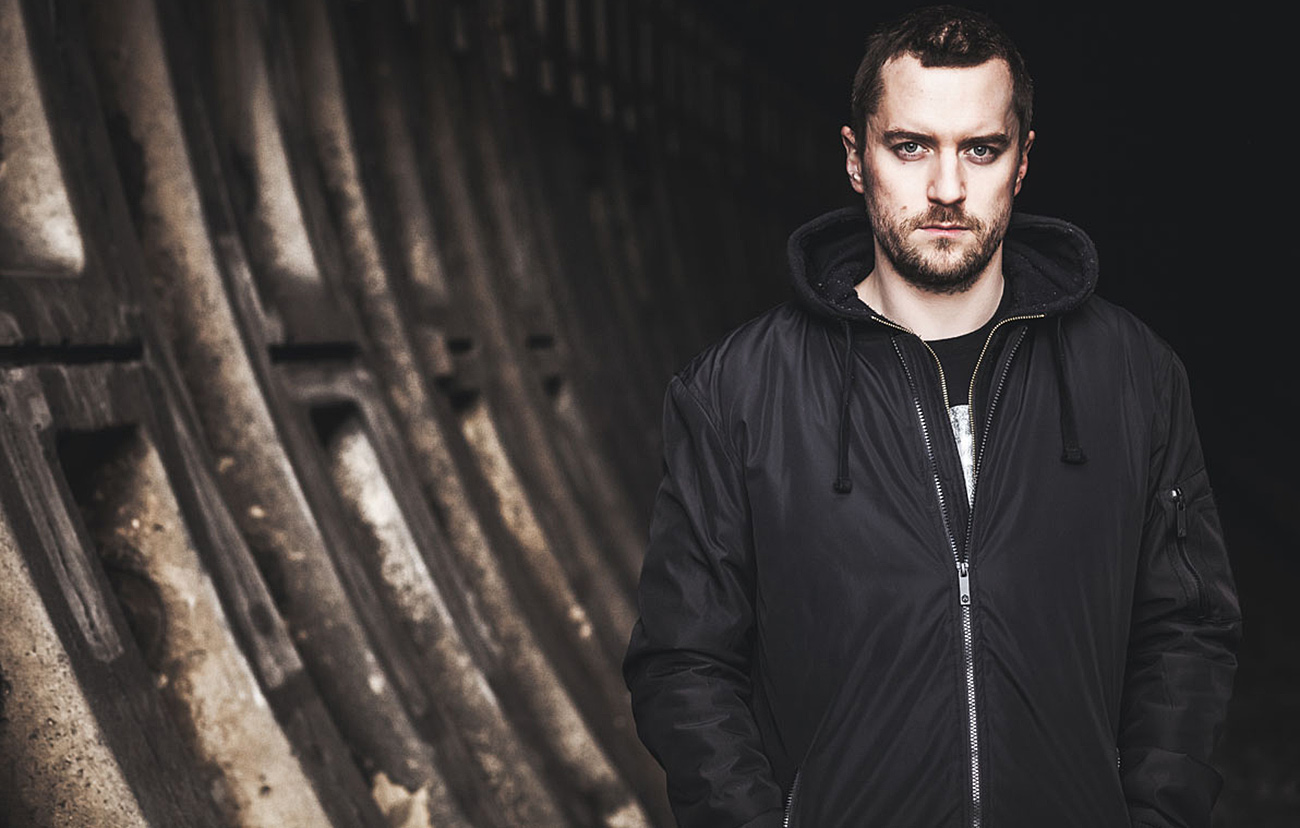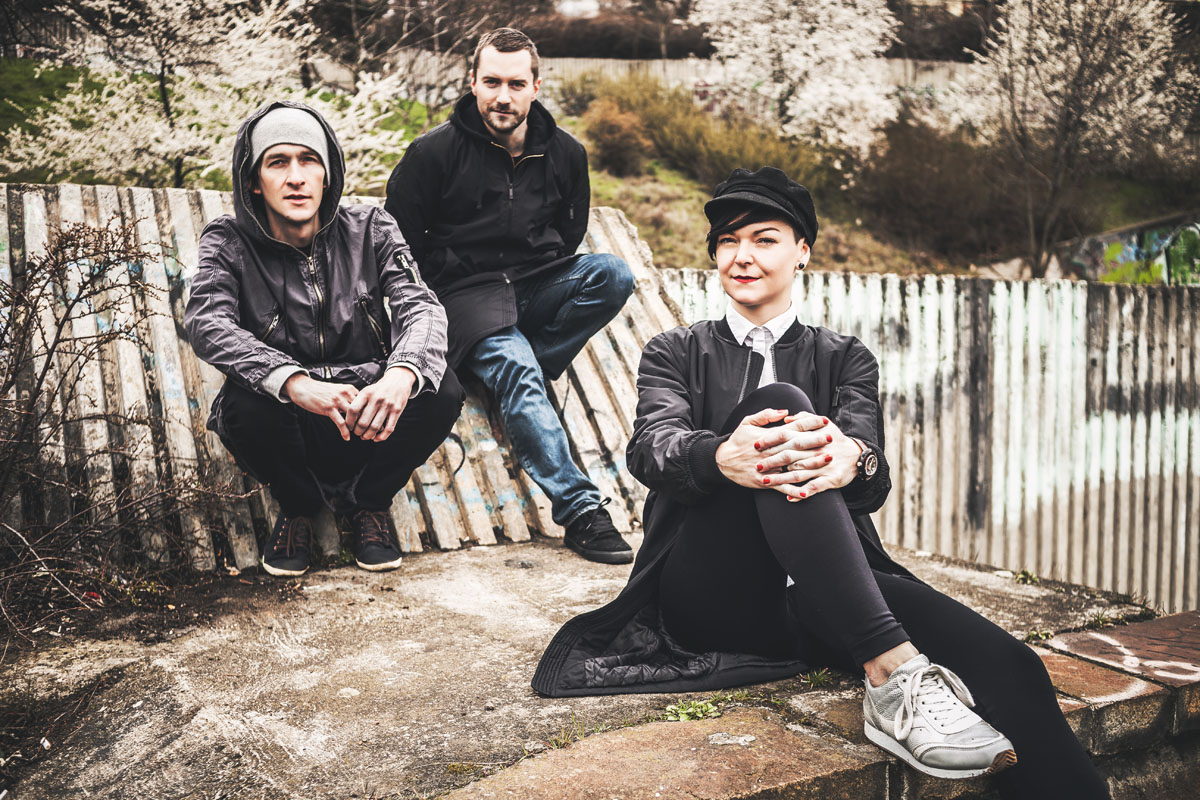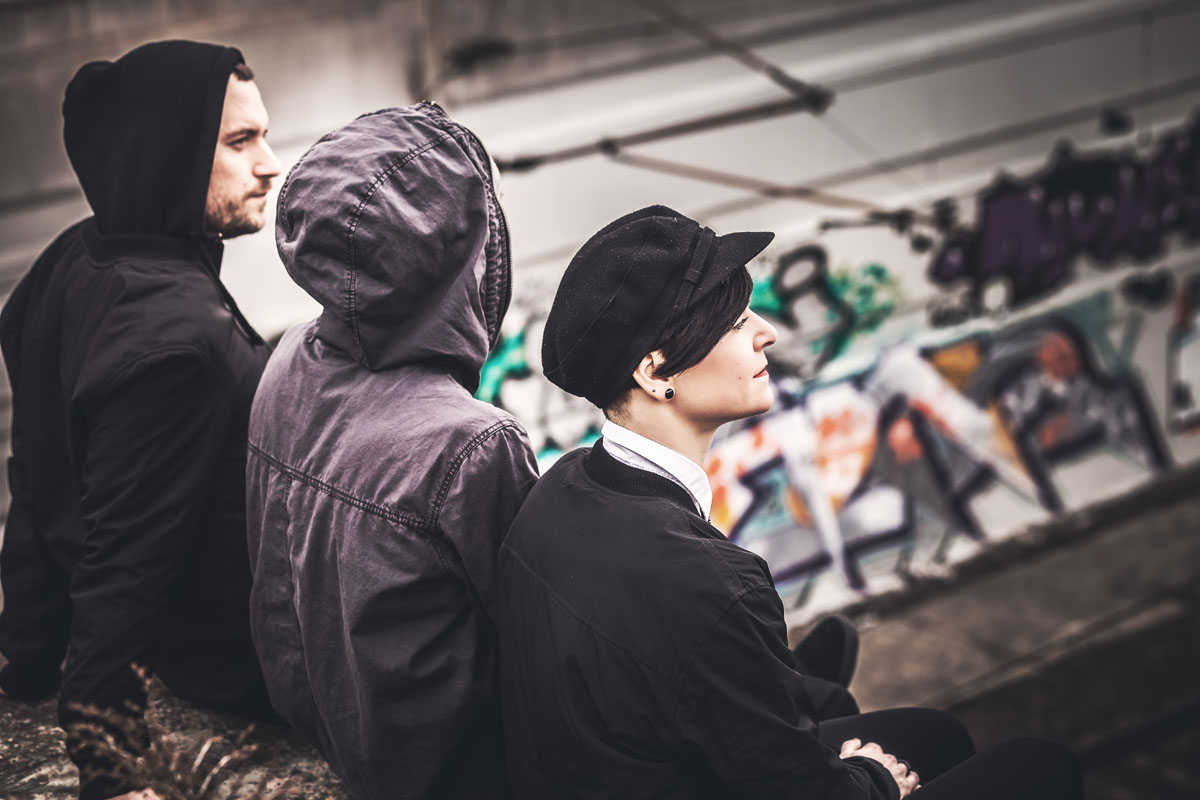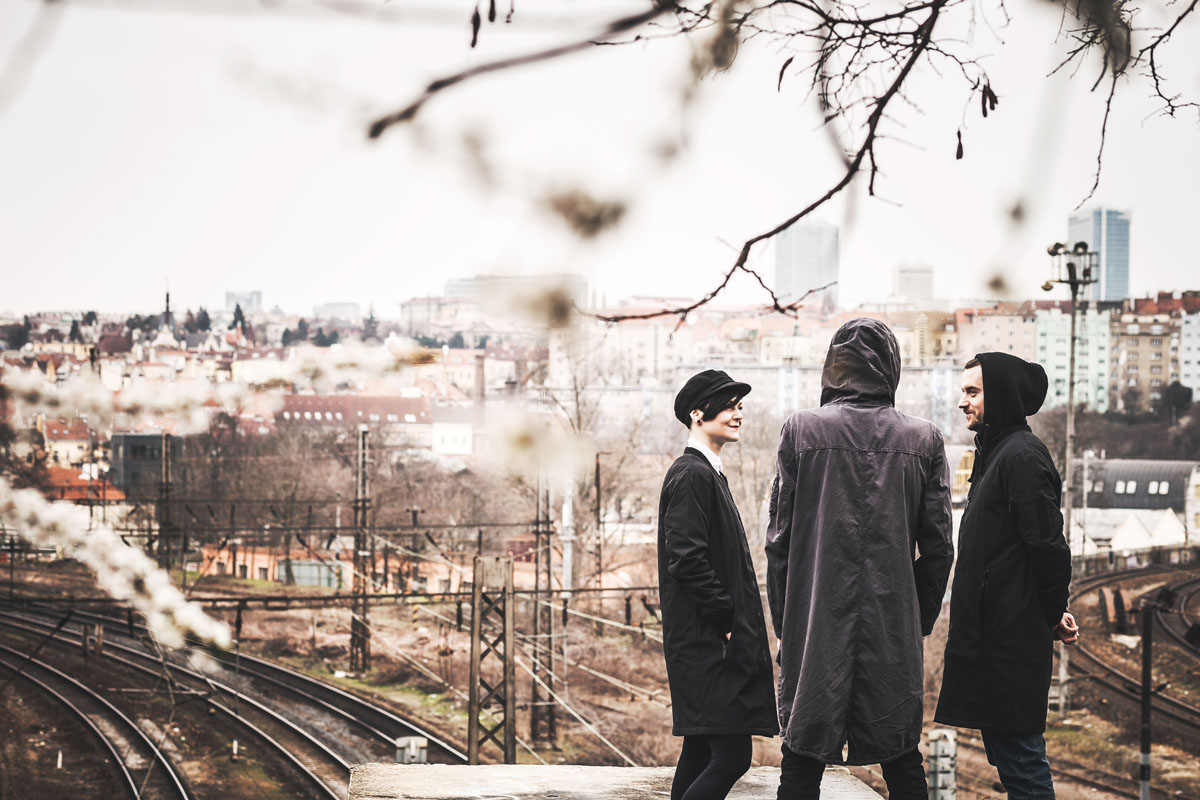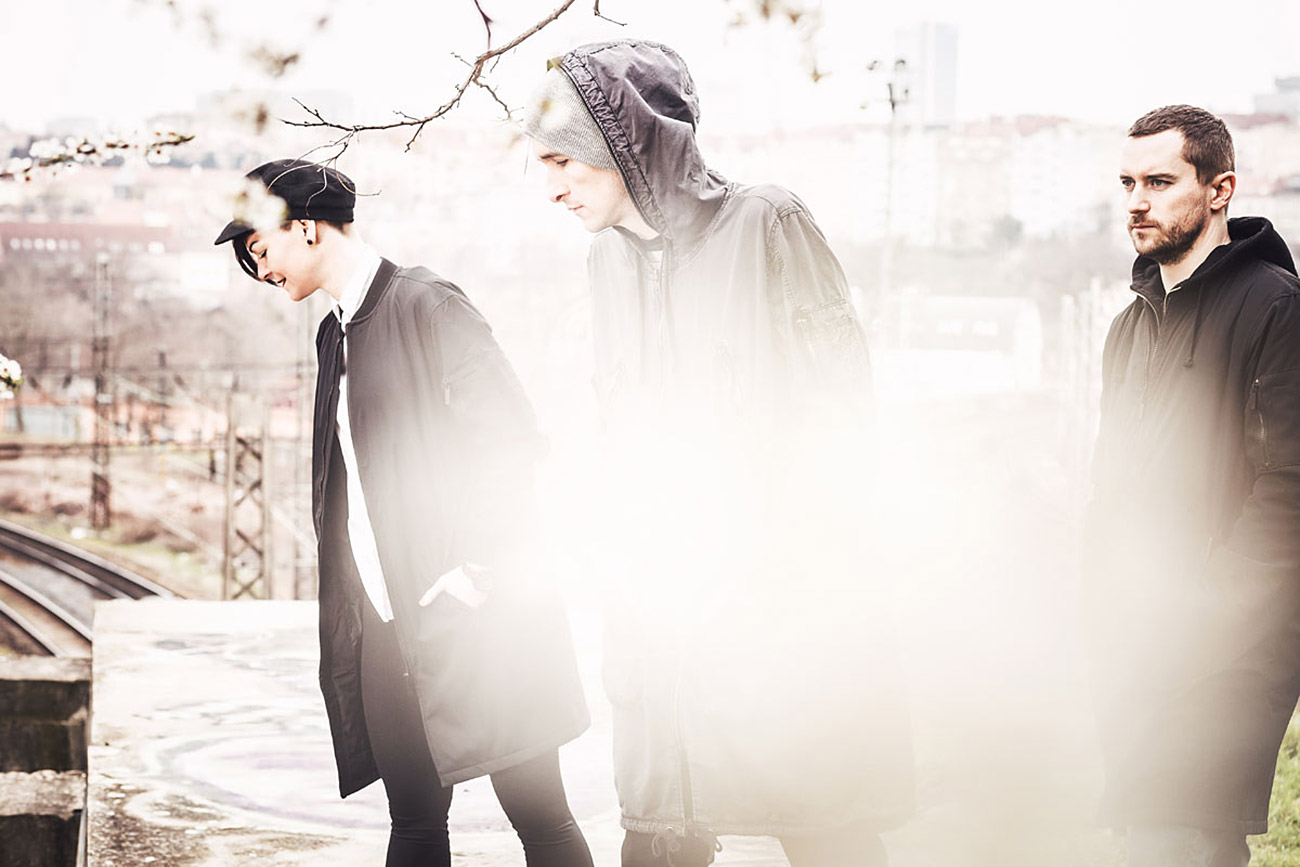“Techno is mostly about feelings which can create infinite number of dimensions. Techno doesn’t need words and sometimes not even a melody and yet it can take you anywhere you want. I definitely don’t think that everything has been said in this genre.”
One could think that the techno genre experiences golden days in Czech these days. From a nearly “undercounter genre” it has developed into a popular trend with quite a decent fan base. Events like Polygon, Nite Vibes or Harmony attract numbers of eager party people who gather in a typical black dress code on special locations so they could celebrate the sanctity of each moment spend with techno rhythms. What happened that this long term marginal music genre suddenly stepped out from the shadows and started to attract all this attention? We sat down and had a talk with one of the loyal ones, one who didn’t leave techno even after it nearly vanished in 2004/2005. Czech DJ, producer and co-founder of Transporta records – Lukas Pihavek aka Pluge – has been sticking to this kind of music since the millenium and he has never had a single doubt of its significance as one of the fundamental electronic music genres. In our talk we discussed the state of techno and importance for Pluge in its early days, years after the millenium; what may be behind its current hype and if Prague can be the next musical mecca. Besides the inside-look into the musical scene, Pluge prepared a special podcast for you, reflecting all kinds of seductive forms of techno music.
Interview by Simona Hypsova
Images by Eva Malusova
What kind of music surrounded you while you were growing up? How did you discovered your interest in music in general?
Music I was listening to when I was really young is not worth mentioning. I didn´t actually have any interest in it. All started when I was 13 years old – I had noticed very different noises and sounds from across the street from a neighbour´s window. So, one day I went there, knocked on his window and asked him what he is playing. He smiled at me, invited me in and actually brought me into the world of electronic music. Thanks to this, I got to things like Thunderdoome compilation, Technotrax, brilliant album Circles of Adam F. Then I started to dig in deeper and discovered great music like U96, KLF, Tricky, Massive Attack, Bjork. Autechre, Aphex Twin and generally music released by Warp Records. Since that moment, I also started to listen Radio FM4 and recorded music clips from Viva TV. Important for my music taste have always been my friends – like DJ Awacs. We were friends growing up together in one village and he always had a great taste in music and he still has an influence on my music taste.
I know that musically you mostly tend to techno. So, what about artists from this genre, who got your attention at the beginning?
Thanks to my older friends (like Awacs) who lend me CDs and tapes I got to rap, house, rave and also techno music. For me one of the most essential compilations were Technoenergy 4 and 6, which were attached to magazine Tripmag. I started to be more interested in artists from these compilations – among them were Regis and Surgeon. Their sound fascinated me immediately once I heard that; it was totally different from what I knew till that moment. I remember that when I bought my first vinyl records, I chose Divine Ritual by Regis and First EP by Surgeon released on Tresor. Basically, I still follow Regis and Surgeon´s work. Everything that happens these days in music is just a copy of their work – at least this is what I think.
That’s an interesting point. Anyway, I know that Pluge is a DJ and producer in one person. Could you tell us what was the crucial moment or impulse for your decision to stand behind the decks and later start creating the music?
At the turn of the millenium, there was quite an interesting group of people in Žirovnice (small city in the South Bohemia, where Pluge grew up). The city was throbbing with life, actually everything was a bit different and vivid. I am not sure whether it was caused by my age or just the whole atmosphere in society. Anyway, at the beginning of summer, the young people from our city were gathered in large garages at the local swimming pool. There were DJ decks and a very solid sound system which was quite noisy so it attracted the attention of the police. A music program was created by a small group of local enthusiasts who formed a „promoters“ group named Zippy Zone. During that summer there was also an open air Techspace where I listened to techno music on a large sound system for the first time and saw a dancing crowd. This whole experience was even enhanced by a beautiful nature around… I know it may sound pathetic, but I fell in love. It was an unbelievable energy and a totally different world. Since that summer, me and my friends followed Zippy Zone to every culture club and visited every party they had organised. We were listening to and watching who is mixing and how he is doing that as we wanted to learn it as well. Since we first of all needed our own decks, we gathered money and bought strappy decks Omnitronic and a sound system. Then I went to České Budějovice to a vinyl shop owned by the legendary techno artist Fryng Wind, where I spent all my money I had in my pockets.
 Transporta records crew – Sebastiano Lora, Pluge, Zuzana Burgrova
Transporta records crew – Sebastiano Lora, Pluge, Zuzana Burgrova
“At the turn of the millenium something extraordinary was happening, I still don´t understand what it was exactly. People were open to anything new and unknown, you could feel it in the air; some sort of expectation for bigger things.”
From what you are telling me it sounds like it was a totally different world at that time. What about your first experience with promoters activities? I guess it all started for you around that time…
All I´m telling you here is quite hard to explain to someone who has not experienced these past days. At the turn of millenium something extraordinary was happening, I still don´t understand what it was exactly. People were open to anything new and unknown, you could feel in the air some sort of expectation for bigger things. In our surroundings in the south of Bohemia, parties were in every village and it was full house every night! At some parties, people were trying to get in through windows. Just an example for you: at the culture house in the small village Vlkov where normally there are like 100 habitants living, Takaaki Itoh and Damon Walero where playing. Or in the culture house prosaically called Jitka in Jindřichův Hradec there were aprox. 1300 people dancing on Makaton and Inigo Kenedy. Another unreal experience what comes to my mind was a gig of Function, Female and Makaton at a club situated in Havlíčkův Brod and the entrance was like 4 euros… At that times techno was a sophisticated culture. Magazines were issued, several booking agencies existed and the whole movement had its own fashion style.
And about promoters activities: We organised lots of small local parties. The most known is probably „Dejchánek“, a small open-air at Žirovnice campsite between 2002 and 2006. Starting in 2006 we made a bit bigger and more popular event called Roots of Sound where we presented DJs from Czech republic. Our last party we did was Makaton and Charlton at Culture house Jitka, we lost almost 1 300 euros. It was so weird – if I realize that on the same party with the same names in 2002 almost 1 300 paying attendees joined and on our party in 2008 we had 29 paying attendees only. The transformation of the scene was really striking. In Czech, techno slowly started to be forgotten in 2004.
“I would be more happy if Prague would be just Prague with its own and special character or atmosphere than just a city that copies and follows what is happening anywhere else. Prague is such a beautiful city with rich history and I really think that we have a great opportunity to create something big that could be recognized in the world scale.”
Although now, the situation with techno in Czech is a bit different but we will talk more about that later again. From what I know about you, about 5 or 6 years ago you moved to Prague from the south of Bohemia. What led you to this decision? And do you perceive this as a positive step for your musical career?
Being in Žirovnice, there wasn’t anything I wanted to achieve. It was all about just to belong somewhere. Of course, it is the same in Prague but with the difference that over here there are a lot of small groups of musical enthusiasts focused on various music genres and activities and you can actually choose from them. Here I know people I can talk to about music I like and share an experience. People in Prague consider techno as the music and alternative and besides that the music is connected with other artistic fields. I met various very interesting personalities who motivate me in some way – that would be impossible in Žirovnice since the openness between people got lost.
I understand. If we think a bit deeper about the position and progression of techno in Czech, there are some, I would say, strange anomalities. Meanwhile in cities like Birmingham, Detroit or Berlin, techno is a legitimate part of the musical scenes, here most of the time it was considered as a marginal genre. So even more strange is that yet in some parts of Czech popular subgenres like schranz or harder forms of techno are more known than anywhere in the Europe. Like you mentioned, around 2004 techno almost completely vanished from people’s mind and returned like 2 – 3 years ago. Nowadays in Prague there are quite big events like Nite Vibes, Polygon or Harmony attracting larger crowds. What do you think about this development and what is the reason of these changes according to you?
Yeah, we can say that techno was almost dead in Czech after the year of 2004. Only few loyal ones didn’t leave – including me. We gathered and met each other inside small bars and clubs, mainly in Prague of course. Techno parties at that time only attracted a few friends and that was it. Nowadays, it is way different again. I guess that there is not only one reason for that. A new generation grew up and something has changed in society. Young people don’t want to accept how the whole system is set up, they are looking for new ways and it’s actually what techno is about – the searching. It is a certain lifestyle. It relates to occasional drug using which opens our mind. I think this kind of culture circulates to us from the West again, although with a slight delay, but still it is a strong feeling. I’m so glad that all this came back to life! I perceive this as a very positive aspect in the whole culture considering the fact on which side the civilisation leans. Parties you mentioned before, they definitely brought sort of „The wind of change is blowing“ feeling to Prague, thanks to them the techno scene came back to life. For me personally, it’s very motivating and inspiring.
Do you think that Prague can aspire on the position of a city with a distinctive musical scene? I don’t have on my mind strictly techno genre, just any musical scene with a special aesthetics.
It’s hard, you know. I remember that once I read a great interview with Surgeon who was talking about creating a differential musical scene reflecting social atmosphere in particular cities. According to him it depends on musical production more than on the number of DJs in the city and of course the quality of the production itself play a really important role. It has to have a significant feeling, an original sound which can cause that you as a listener are able to recognize the scene from which the artist comes from. F.e. you can distinguish quite well techno released on German labels compared to Detroit techno. If we apply this sort of theory to Czech, it’s a bit tricky. There are several good and skilled DJs but less producers, it’s more like individuals or small crews operating on their spot. And the problem is that they release good tracks, but most of them are drown in worldwide production, because they do not stand out. We still do not have our own strong musical signature which would represent an attitude or feelings of a certain artistic scene. I think maybe in the future Prague could be known as a great and cheap party spot, but not for its own musical movement. Moreover, it’s quite interesting that if you look on our Slovak neighbours, they did it. Slovak techno producers and DJs like Olga & Jozef, Antidundurff and collective around U Club, they got recognition and a spot on the worldwide sceen. Generally I would say that the local scene there is a bit diffrent from Czech.
“A new generation grew up and something has changed in society. Young people don’t want to accept how the whole system is set up, they are looking for new ways and it’s actually what is techno is about – the searching. It is a certain lifestyle.”
That’s an interesting point of view. It’s also a bit strange that often you can hear or read on the internet that Prague „is like the new Berlin“…
Yeah, yeah, honestly I don’t feel it this way. I would be more happy if Prague would be just Prague with its own and special character or atmosphere than just a city that copies and follows what is happening anywhere else. Prague is such a beautiful city with rich history and I really think that we have a great opportunity to create something big that could be recognized in the world scale.
Yeah, I agree. So, back to your own work; during your almost 15 years long DJ and producer career you still stick to the techno genre which can be considered as one of basic genres of electronic music. What’s so fascinating for you about this genre? Don’t you think that everything has been said in techno?
Techno is mostly about feelings which can create infinite number of dimensions. Techno doesn’t need words and sometimes not even a melody and yet it can take you anywhere you want. I definitely don’t think that everything has been said in this genre, although when I’m digging for a new music, lots of releases sound the same and one really must go deeper to find an original sounds or artist. But to name a few artists I really like from the contemporary scene – Shifted, Reeko, Ventress, Svreca, Marcel Dettmann, Conforce, Skudge, Oscar Mulero, Kesell and so on.
Like any other genres, techno can have many faces. When you DJ or produce music, do you experiment with mixing various elements together, like industrial or ambient?
I am not fixated on one thing or genre. If I play as a DJ I like to connect more elements together, I don’t like to play only one form of techno music. The same is with the production of music. Actually, I do enjoy recording sounds of the city and using them in my tracks.
Your name is closely linked to the label Transporta Records. Could you reveal for us the story behind the label?
When techno disappeared in 2005, all that was left for me was a stack of vinyl records. Me and my friend Martin aka Wetrix didn’t have anything besides the records, so we just started to meet each other in a small test room in Jindřichův Hradec, this place was legendary by the way – an old nonfunctional freezer of Lada automobile companie‘s canteen. At this place we were totally disconnected from the world thanks to thick steel door, there was no signal or internet connection. Just vinyl records, decks, cigarettes and mice. Here we have started with creating and recording our music. The whole building was full of refrigerator motors and old elevators – the manufacturer of them was Transporta Chrudim, an old and traditional [now non-existing] company. For us it was very inspiring and basically that was all that stood behind the idea of Transporta Records.
Was the main reason for starting the label to present your music? I guess in that time period there weren’t many labels or other options for releasing music, right?
Yeah, exactly. Me and Wetrix just wanted to present our work, to reflect our own development and mainly to gain some feedback we didn’t have. Basically, at that moment we didn’t even consider the option to ask and look for other artists who could join Transporta. Although, later DJ Dialect, with whom we have a musical connection, joined us. Thanks to him Transporta was supported by Tomohiko Sagae, Doryk or Robert Pain. But our paths split recently and now Transporta represented by me and Wetrix again and Sebastiano Lora who helps us with management and the PR side of the label.
When I look on Transporta, I can see some progression. Could you tell us more about the graphic side of the label? What’s the role of the visual side for Transporta?
Thanks to Sebastiano we met a great graphic designer called Zuzana Burgrová. She heard out our story and willingly started to work on the visual aspect of label. Finding a good graphic designer who could reflect our effort was a natural outfall in terms of good and systematic work on the label. Since I like quality typography and think it should have its role over the simple visual message, the cooperation with Zuzana was the best option we could find. Her contribution for the label’s direction is in her ability to think in a conceptual way. Her works brings new ideas which can inspire us and move us forward. I am also very grateful that we found a brilliant photographer named Eva Malúšová who contributed to the shape of our visual identity.
Soon there will be the 10th release on Transporta records. Are you working on something special?
Yeah, we gathered quite a lot good material, we just need to polish a few things. It should be out on the beginning of June. The visual side will be again in hands of Zuzana.
What is next for Transporta records and Pluge?
I would be happy if things got steady and listeners would recognize us musically and visually. Also, I would love to find more talented and interesting producers with similar sound and taste who could join Transporta. These days we are working on the concept of regular label nights in Prague, I really hope it will work out.
What can you tell us about your mix for C-Heads?
I tried to create a colorful selection of artists I like and respect (some of them I mentioned in the interview) and whose tracks have similar atmosphere and structure. The mix should be listened to as a whole piece, hope you will enjoy it!
For more updates and information follow Transporta records on Soundcloud, Bandcamp or Instagram.

